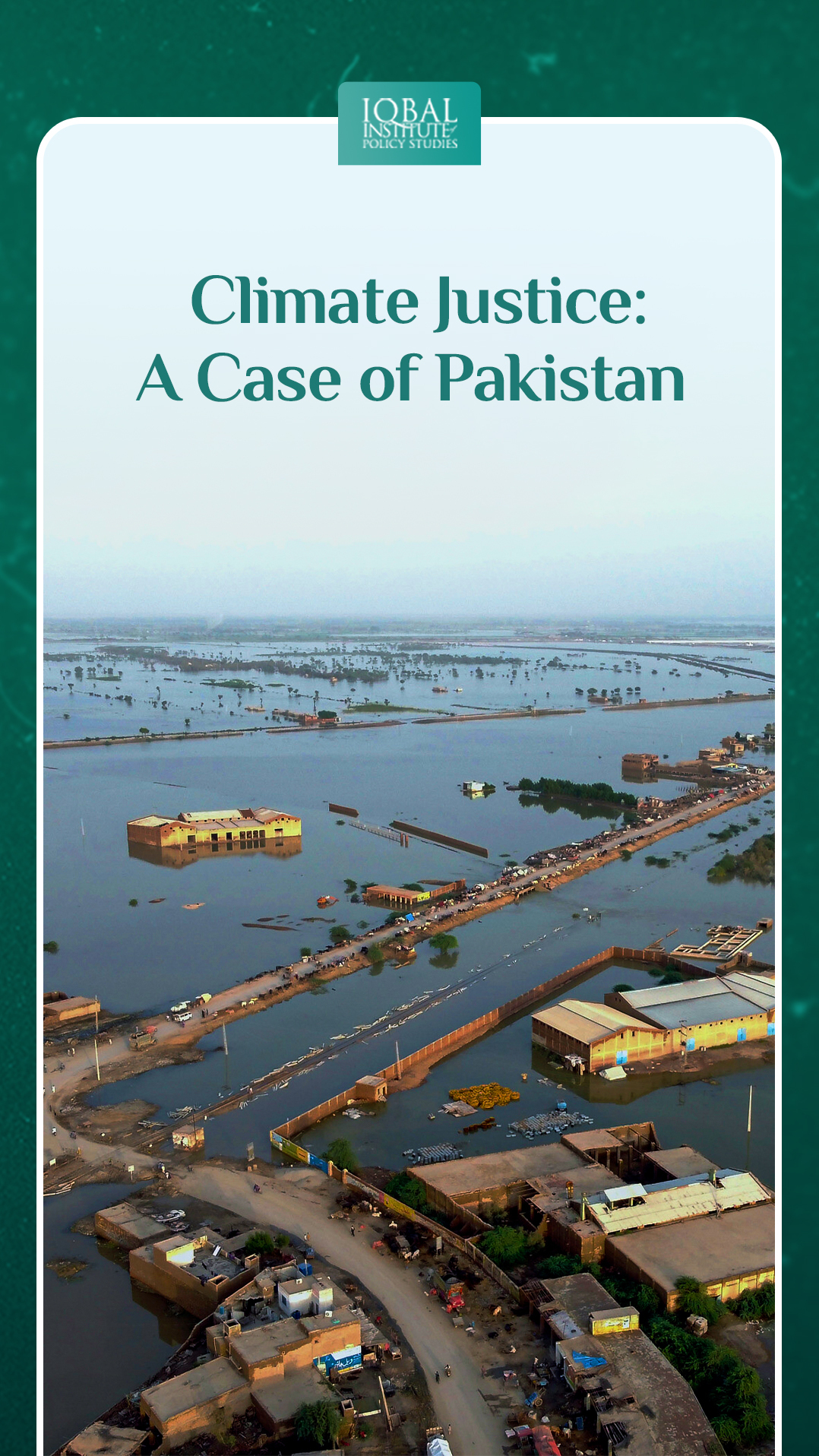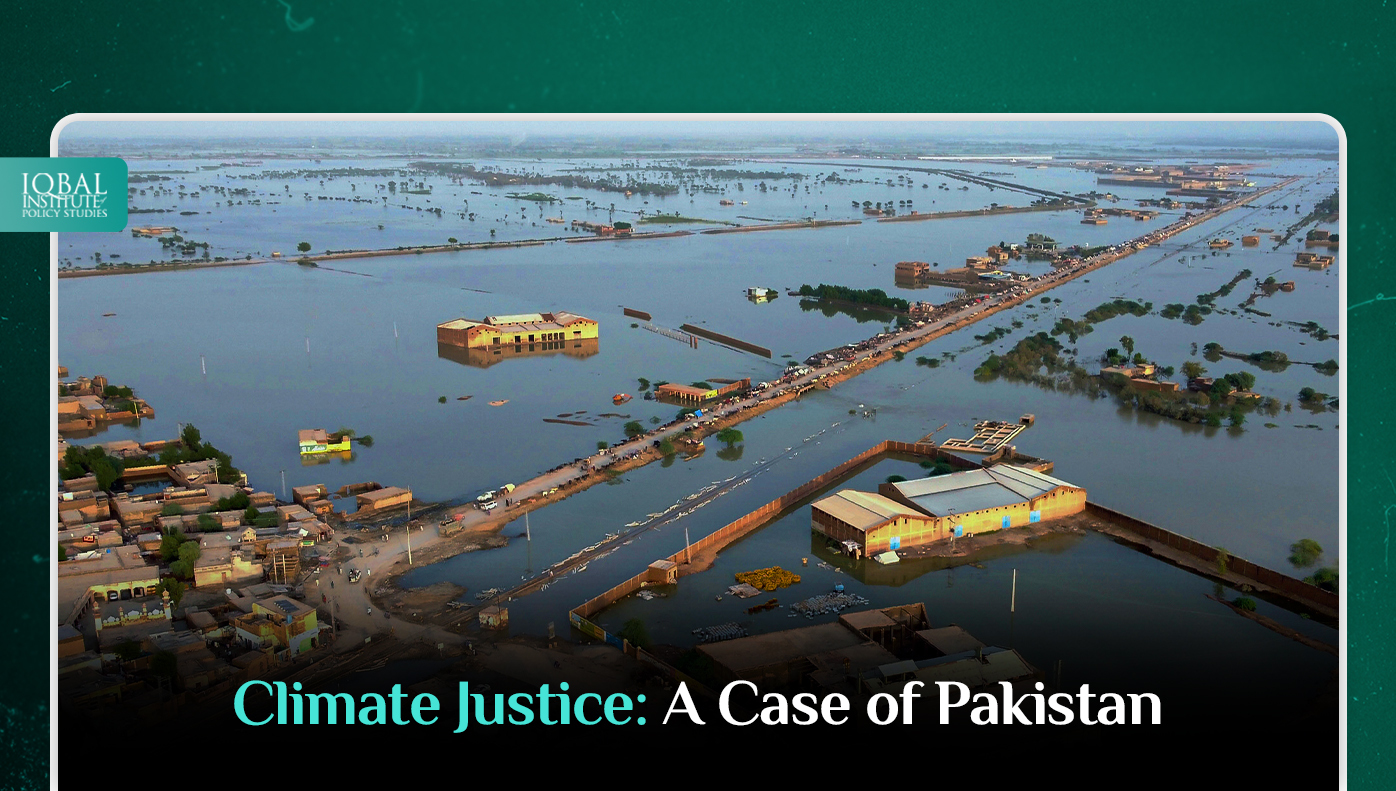Climate change is an unambiguous and anthropogenic phenomenon. The radical shifts in climate are deeply linked with global patterns of inequality where the least responsible nations bear the aggravating climate change impacts yet contribute least to the crisis. This is the injustice at the core of the climate problem. As a result, voices for action have been mobilised based on the concept of climate justice. This has grabbed the attention of international organisations and policymakers worldwide who comprehend the causes of climate change, acknowledge its solutions, and yet persist in delaying action on the required scale. The consequences of it subvert human development, undermine human rights, and result in injustice, mostly in countries which contribute least to climate change. Therefore, the dilemma of climate injustice can be the driver for an urgent response to this global issue, where all people and countries are treated fairly and ultimately prevent dangerous and irreversible climate change.
What is Climate Justice?
Climate justice is a concept that addresses human rights and social inequality. It links human rights with development and climate action, gives solutions with a people-centred approach, and comprehends nations’ contributions towards climate change. The world’s richest countries are responsible for 50% of GHG emissions, whereas approximately 50% of the poorest nations are responsible for only 10% (Unicef, 2022). Countries which have contributed less to climate change often bear the burden of its consequences. This injustice can be reformed by immediate climate action by everyone despite their contributions. Moreover, climate justice encourages the global community to act in solidarity to transition into a net zero carbon economy which might help combat social injustice, gender injustice, economic injustice, intergenerational injustice and environmental injustice in the long run.
Is Climate Crisis in Pakistan a Result of Climate Injustice?
For Pakistan, this year was termed a year of climate catastrophes, including massive floods that caused the destruction of unimaginable proportions. Climate change-induced disasters have caused more than 1700 deaths, displaced more than 8 million people, and resulted in an economic loss of more than $30 billion (The World Bank, 2022). Moreover, one-third of the country is under water, affecting 33 million people (World Bank, 2022). According to the Global Climate Risk Index, Pakistan has been among the top 10 countries most affected by climate change in the past two decades (Rupert, 2022). Although Pakistan contributes 0.8% of worldwide GHG emissions yet is severely affected by radical shifts in climate (Lin & Raza, 2019). Around 41.5% is contributed by China, the U.S., and the European Union, making them the world’s top three greenhouse gas emitters (World Economic Forum, 2020). Despite such large contributions, these countries are least vulnerable to the ominous threats of climate change. As a result of the havoc caused by floods in Pakistan, the global debate on climate justice has been reawakened.
Furthermore, Pakistan has a struggling economy and owes a great debt of USD 22 billion, payable within a year to the largest carbon emitters like the US, China, EU and the UK (Khan, 2022). The country is paying the price of human-induced climate change, to which it contributes the bare minimum. Also, low-income countries like Pakistan pay 5 times more on debt payments than those dealing with climate change (Jubilee Debt Campaign, 2021). This injustice leads to the global demand for climate justice and reparations, specifically by developing countries most vulnerable to climate change. During the 27th Climate Change Conference (COP), Pakistan demanded climate aid to cope with the recent climate consequences. Many members opposed the call for USD 160 million in aid for Pakistan, as it is just a fraction of the total losses that Pakistan has suffered (Khan, 2022). Climate change has become a single nation’s worry. Also, the pace of climate change cannot be slowed down without significant actions from the top 10 GHG-emitting countries. Therefore, international structures should be sensitive towards climate change and develop effective solutions that save developing nations from the catastrophic impacts of climate change.
How can Climate Reparations Help Pakistan?
The immediate relief and donations provided by various nations to Pakistan during the climate crisis directed the country towards the recovery stage. However, Pakistan should not be getting aid after devastating floods. It is owed climate reparations instead, specifically by nations that are major contributors towards climate change. Hence, International communities and wealthy nations should invest in the country to build stronger river embankments, more resilient building materials, updated water infrastructure, and flood risk-management systems. Moreover, global initiatives like technical and analytical help operationalising flood forecasting must become fully active and large-scale in Pakistan to lessen future flood risks and consequences. Also, foreign assistance can aid provincial and local governments in pursuing climate adaptation policies more broadly and can train those officials that lack the expertise and resources to tackle such cases.
Furthermore, Pakistan is an agro-based country where more than 65 to 70% of its population depends on agriculture for its livelihood (Pakistan Economic Survey, 2021). However, the agriculture sector is the most climate-vulnerable, making workers more prone to displacement. Therefore, climate donations can help in the vocational training and skill development programs of people vulnerable to vagaries and climate change. However, reparations alone will not constrict the inequality gap between the world’s wealthiest and poorest nations. Besides urgently needed climate aid, countries must work together to reduce carbon emissions, invest in what they have pledged in climate education, and build resilience in the Global South. Instead of waiting for a carbon-neutral 2050, the world must act now.
The Way Forward
Global climate justice will take years to become effective as it relies on international mechanisms, agreed principles, and functioning institutions which are still underway. Moreover, this stance will be elusive for the country unless incorporated internally in the policies. Therefore, climate justice must begin in Pakistan first.
Climate change measures must be anchored into national policies, strategies and planning.
State policies must be completely redesigned and restructured to become more climate resilient and should entail effective measures and the urgent need to combat climate change.
Investments in Early Warning Systems (EWS) and disaster planning are crucial in developing better and quick approaches to flood risk reduction and climate change adaptation.
Promote mechanisms for raising capacity for effective climate change-related planning and management in the least developed areas, including focusing on women, youth and local and marginalised communities.
Improve education, awareness-raising and human and institutional capacity on climate change mitigation, adaptation, impact reduction and early warning.
Conclusion
Climate change is a matter of justice. Countries that contribute least to the radical shifts in climate are the most affected. As a result, human rights are compromised, such as the right to food, shelter, and development. The recent global trend of climate justice should drive collective action toward the internationally agreed goal of limiting global warming. Instead of waiting for climate justice and looking up to international forums for climate reparations, climate-vulnerable countries like Pakistan must first begin climate justice at home. By incorporating climate change measures into national policies, strategies and planning, the pace of climate change can be lessened. Moreover, countries which contribute most to climate change must take responsibility for their actions; otherwise, the global demand for climate justice will only grow. Climate change is not a single nation’s problem but a global threat. Therefore, nations must come together to mitigate the climate crisis before it is too late.
This article is written by Haneen Gul. Haneen is a research analyst at the Iqbal Institute of Policy Studies.



Leave a Reply